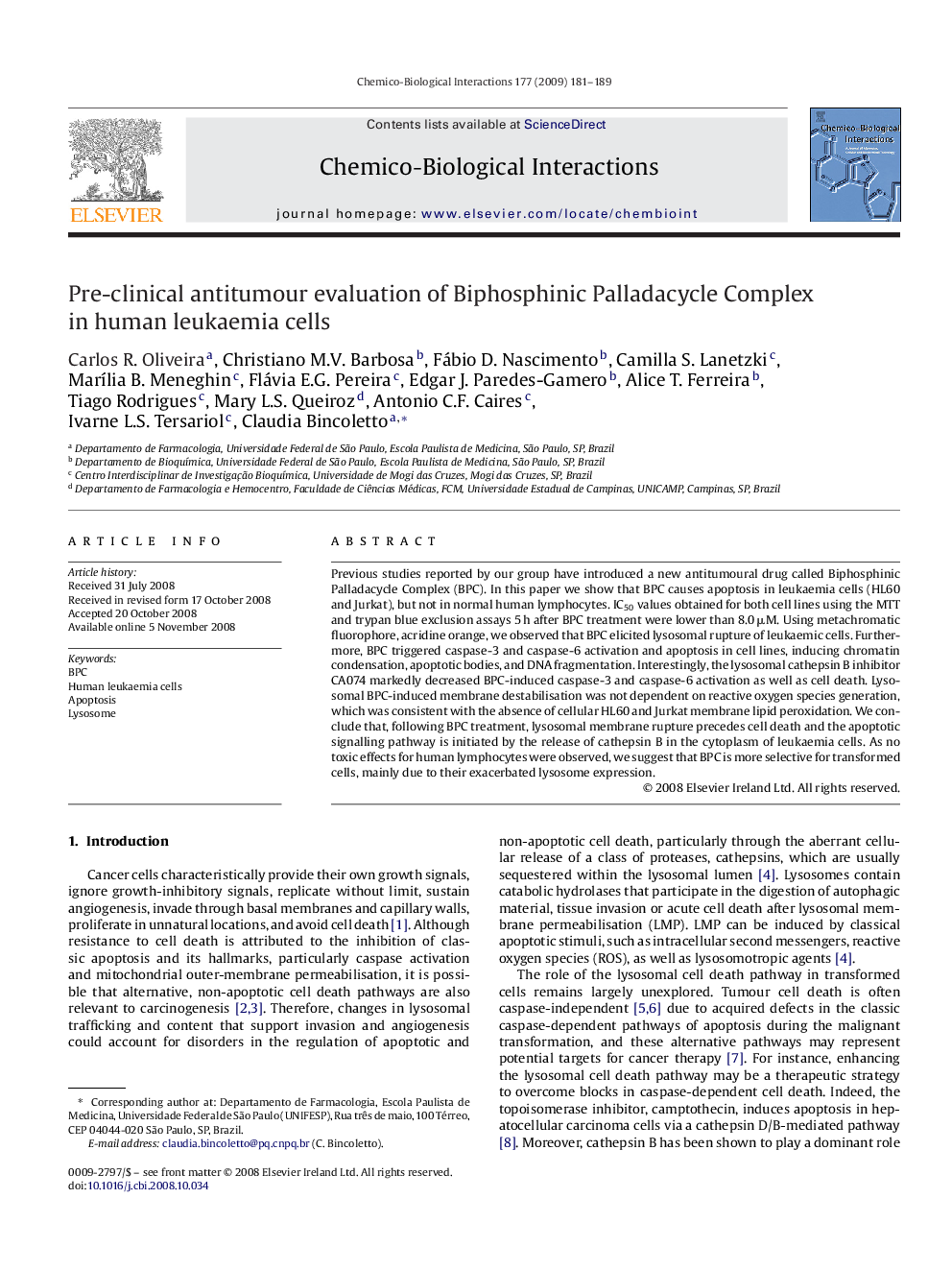| کد مقاله | کد نشریه | سال انتشار | مقاله انگلیسی | نسخه تمام متن |
|---|---|---|---|---|
| 2581715 | 1130204 | 2009 | 9 صفحه PDF | دانلود رایگان |

Previous studies reported by our group have introduced a new antitumoural drug called Biphosphinic Palladacycle Complex (BPC). In this paper we show that BPC causes apoptosis in leukaemia cells (HL60 and Jurkat), but not in normal human lymphocytes. IC50 values obtained for both cell lines using the MTT and trypan blue exclusion assays 5 h after BPC treatment were lower than 8.0 μM. Using metachromatic fluorophore, acridine orange, we observed that BPC elicited lysosomal rupture of leukaemic cells. Furthermore, BPC triggered caspase-3 and caspase-6 activation and apoptosis in cell lines, inducing chromatin condensation, apoptotic bodies, and DNA fragmentation. Interestingly, the lysosomal cathepsin B inhibitor CA074 markedly decreased BPC-induced caspase-3 and caspase-6 activation as well as cell death. Lysosomal BPC-induced membrane destabilisation was not dependent on reactive oxygen species generation, which was consistent with the absence of cellular HL60 and Jurkat membrane lipid peroxidation. We conclude that, following BPC treatment, lysosomal membrane rupture precedes cell death and the apoptotic signalling pathway is initiated by the release of cathepsin B in the cytoplasm of leukaemia cells. As no toxic effects for human lymphocytes were observed, we suggest that BPC is more selective for transformed cells, mainly due to their exacerbated lysosome expression.
Journal: Chemico-Biological Interactions - Volume 177, Issue 3, 12 February 2009, Pages 181–189